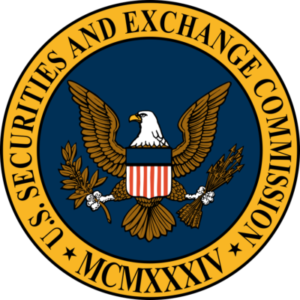Selling away, also known as private securities transactions, or undisclosed outside business activities occurs when a stockbroker engages or participates in the sale of securities to investors outside of the formal approval of the securities firm with whom they are associated.
 As a general matter, stockbrokers are only permitted to engage in the solicitation or sale of investments and investment related products approved by their firm. However, quite frequently, stockbrokers solicit, participate, or directly engage in the sale of typically unregistered securities or investments without the approval and outside of the auspices of their firm. These investments may take on many forms, and may include the recommendation of an outside money manager, or a hedge fund, which may sometimes turn out to be a Ponzi scheme. Sometimes these outside investments may include off-shore securities, insurance trusts, stocks or ownership interests in small businesses, startup ventures, corporate debentures, mortgage notes, private placements, promissory notes, oil & gas interests, real estate partnerships, pre-IPO shares, and a variety of other investments.
As a general matter, stockbrokers are only permitted to engage in the solicitation or sale of investments and investment related products approved by their firm. However, quite frequently, stockbrokers solicit, participate, or directly engage in the sale of typically unregistered securities or investments without the approval and outside of the auspices of their firm. These investments may take on many forms, and may include the recommendation of an outside money manager, or a hedge fund, which may sometimes turn out to be a Ponzi scheme. Sometimes these outside investments may include off-shore securities, insurance trusts, stocks or ownership interests in small businesses, startup ventures, corporate debentures, mortgage notes, private placements, promissory notes, oil & gas interests, real estate partnerships, pre-IPO shares, and a variety of other investments.
Failed Supervisory Structure of Non-traditional Firms
As at least one commentator has suggested, the structure of non-traditional firms has made it inherently difficult for such broker-dealers to properly design, implement, and maintain a supervisory structure capable of preventing selling away cases. In fact, the United States Securities Exchange Commission has found that the “mere existence of a remote office where a registered representative is engaging in outside business activity constitutes a red flag where, by nature of the business, the representative creates a potential vehicle by which he may carry out or conceal violations of the securities laws.” P. Michaels, Arbitration of Trading Away Cases Against Non-Traditional Broker-Dealers, Securities Arbitration 2002 (PLI), Volume I at 621(quoting, In the Matter of Prospera Financial Services, Inc., 73 S.E.C. 935 at 6 (Sept. 26, 2000)).
Selling Away is a Brokerage Firms Responsibility
 Whether a brokerage firm has expressly authorized its stockbrokers to sell or participate in these activities is generally irrelevant. Brokerage firms can be held responsible for the conduct of their registered representatives in “selling away” cases based upon the broker-dealer’s failure to supervise all the activities of their registered representatives. Liability will also attach to the brokerage firm for these outside or unapproved activities where the stockbroker acted with apparent authority, or the investor reasonably believed that these activities were approved or part of the stockbroker’s activities or services.
Whether a brokerage firm has expressly authorized its stockbrokers to sell or participate in these activities is generally irrelevant. Brokerage firms can be held responsible for the conduct of their registered representatives in “selling away” cases based upon the broker-dealer’s failure to supervise all the activities of their registered representatives. Liability will also attach to the brokerage firm for these outside or unapproved activities where the stockbroker acted with apparent authority, or the investor reasonably believed that these activities were approved or part of the stockbroker’s activities or services.
When an investor deals with a member’s agent or representative, the investor deals with the member. A dispute that arises from a firm’s lack of supervision over its brokers arises in connection with its business. The fact that an associated person conducts business at an unregistered office or is compensated as an independent contractor does not alter the obligations of the individual and the firm to comply fully with all applicable securities regulatory requirements.
Courts and securities arbitration panels have long held brokerage firms responsible for the conduct of their registered representatives in “selling away” cases based upon the broker-dealer’s failure to supervise. See, e.g., Hunt v. Miller, 908 F.2d 1210 (4th Cir. 1990); Harrison v. Dean Witter Reynolds, Inc., 974 F.2d 873 (7th Cir. 1992)(firm liable for agent’s selling away activities); Hollinger v. Titan Capital Corp., 914 F.2d 1564 (9th Cir. 1990)(same); State Security Insurance Co. v. Burgos, 583 N.E.2d 547, 557 (Ill. 1991)(liability for firm where broker acted with apparent authority); Salmon v. New England Securities Corp., FINRA Arb. No. 01-06935 ($1.4 million award against member for associated persons “selling away” third party notes); Sleight v. Centaurus Financial, FINRA Arb. No. 10-00536; Brezden v. Associated Securities Corp., FINRA Arb. No. 07-03054 (reasoned award against member for failure to supervise agent’s selling away activties); Chandler v. FSC Corporation, NASD Arb. No. 05-0443, (reasoned award against member for failure to supervise agent’s unauthorized selling away); Battle v. Northeast Securities, Inc., NASD Arb. No. 06-04110, (same)(reasoned award); Dobison v. Jospehthal, Lyons & Ross, Inc., NASD Arbitration No. 96-00963 (arbitration award against brokerage firm for broker’s selling away of unregistered notes and warrants). Securities regulators have also taken the same approach and routinely hold broker-dealers responsible for the “failure to supervise,”  when their representatives engage in this outside activity. In Re DBCC (No. 5) v. Charles E. French, Complaint No. 5940026, May 18, 1995 (sanctions against member for selling away activity of broker); Siriani v. United States Securities & Exchange Commission, 677 F.2d 1284 (9th Cir. 1982); Stoiber v. Securities & Exchange Commission, 161 F.3d 745 (D.C. Cir. 1998).
when their representatives engage in this outside activity. In Re DBCC (No. 5) v. Charles E. French, Complaint No. 5940026, May 18, 1995 (sanctions against member for selling away activity of broker); Siriani v. United States Securities & Exchange Commission, 677 F.2d 1284 (9th Cir. 1982); Stoiber v. Securities & Exchange Commission, 161 F.3d 745 (D.C. Cir. 1998).
Section 20(a) of the Exchange Act of 1934, 15 U.S.C. 78t(a) provides that:
every person who directly or indirectly controls and person liable under any provision of this chapter or any rule or regulation thereunder shall also be liable jointly and severally with and to the same extent as such controlled person to any person to whom such controlled person is liable, unless the controlling person acted in good faith and did not directly or indirectly induce the acts or acts constituting the violation or cause of action.
15 U.S.C. § 78t(a); See also, Hollinger v. Titan Capital Corp., 914 F.2d 1564, 1573 (9th Cir. 1990)(“Congress adopted Section 20(a) in an attempt to protect the investing public from representatives who were improperly supervised or controlled”). In order to establish liability under Section 20(a), a plaintiff need only allege that the controlling person had knowledge, or at least a duty to know, of the alleged wrongful activity, and the power or ability to control or influence the affairs of the controlled persons. Arthur Children’s Trust v. Keim, 994 F.2d 1390, 1398 (9th Cir. 1993); Powers v. Eichen, 977 F. Supp. 1031, 1044-45 (N.D. Cal. 1997) (“plaintiff need not show day-to-day control of affairs, only that defendants had possession of the power to influence in order to state a claim under Section 20(a)”); Safeway Portland Employees’ Fed. Credit Union v. C.H. Wagner & Co., 501 F.2d 1120 (9th Cir. 1974) (same); See also., Platsis v. E.F. Hutton & Co., Inc., 642 F. Supp. 1277 (W.D. Mich. 1986) (liability will attach under Section 20(a) where control person exercises control in the activities or operations of the control person); Bull v. Chandler, 1987 Transfer Binder, Fed. Sec. L. Rep. ¶ 93,257 (CCH) (N.D. Cal. 1987) (participation of control person in activities of controlled person sufficient to confer liability).
Guiliano Law Group
Our practice is limited to the representation of investors. We accept representation on a contingent fee basis, meaning there is no cost to you unless we make a recovery for you. There is never any charge for a consultation or an evaluation of your claim. For more information, contact us at (877) SEC-ATTY.
For more information concerning common claims against stockbrokers and investment professionals, please visit us at securitiesarbitrations.com.
To learn more about FINRA Securities Arbitration, and the legal process, please visit us at securitiesarbitrations.com
